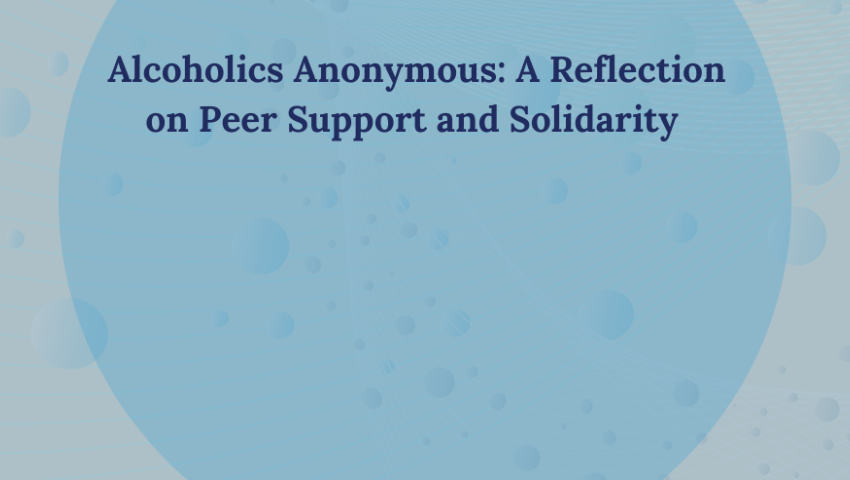Members are united through this group and given the opportunity to share with others their own experiences, personal shortcomings, goals, and achievements. The primary goal of the fellowship is to encourage recovery from alcohol addiction through providing support, offering guidance, promoting spiritual growth, and fostering accountability. The program works to help individuals achieve and maintain sobriety from alcohol use through a sequential, 12-step program. The steps are designed to be worked in order, each building on the previous step's foundation. The steps include admitting you are powerless over alcohol and your life has become unmanageable, making amends, and recognizing wrongdoings. These steps foster personal growth, spiritual growth, and a path toward recovery from alcoholism.
Alcoholics Anonymous was founded by two people recovering from alcoholism, Bill Wilson and Dr. Bob Smith. Both individuals battled addiction and relied on the support of others to overcome their addiction. Both had a deep desire to help others and believed they could help people suffering from alcohol addiction by creating a group where supporting others was the primary focus. These groups are effective because they include peer accountability, anonymity, and long-term support. Anyone can attend the program, and there are meetings all over the world at various times to accommodate all who are seeking help.
To learn more about the AA program, I attended a group meeting in the spring of 2024. At the meeting I attended, there were many different topics discussed and overarching themes present. The theme that stood out to me the most was perseverance. Many AA participants have been through numerous obstacles in their life. When they shared their experiences, other group members showed solidarity by sharing that they had faced similar challenges. Many individuals talked about repairing relationships with others and shared stories about ways that they have been able to do that. Other individuals shared details about the moment they realized alcohol was a problem. They also talked about what it was like living in the denial stage of their disease. At the AA meeting, all the individuals were kind and caring towards others and listened attentively. The meeting focus was on creating a non-judgmental environment where others were lifted up.
Before I attended the AA meeting, I was very nervous. I did not know what to expect. I was worried that it might be a sad or even frightening experience. I was also nervous because I had never been to a support group before. Upon entering, everyone was kind and welcoming even though I was there to observe and would not be attending on a regular basis. Heading into the meeting, I was offered coffee and greeted by multiple individuals as they came in and sat down.
Throughout the meeting, the AA members referenced a text, Alcoholics Anonymous: The story of how many thousands of men and women have recovered from alcoholism, often referred to as the “Big Book.” This was used as the foundation for discussion. Many members talked about negative experiences they had with alcohol but also recognized how they have learned and grown from these experiences. Group members talked about resolving conflicts with family and friends and the different ways that AA has taught them to grow despite their addiction.
I was surprised by how much I took away from the AA meeting. One element I enjoyed was the spiritual aspect of the meeting. I am a religious person and seeing how God has impacted many of these individuals’ lives was very empowering. Resolving conflict is challenging and learning how the group members work to do the right thing, forgive, and make amends was something that really hit home with me. At the very end of the meeting, I asked one of the group leaders, “If there was anything that you wish healthcare providers would take into consideration when treating patients struggling with addiction, what would it be?” The leader wished that healthcare providers would always remember that individuals suffering from this disease did not choose it. That really resonated with me. I know that as a nurse, I will encounter patients whom I don’t always agree with or who have made different life choices from the ones that I have made. But at the end of the day, I believe that it is not our job to decide whether or not someone is worthy of our love. It is our job to give love to everyone. That is the reason I decided to go into the field of nursing and why I will choose to always treat my patients with kindness and understanding.

